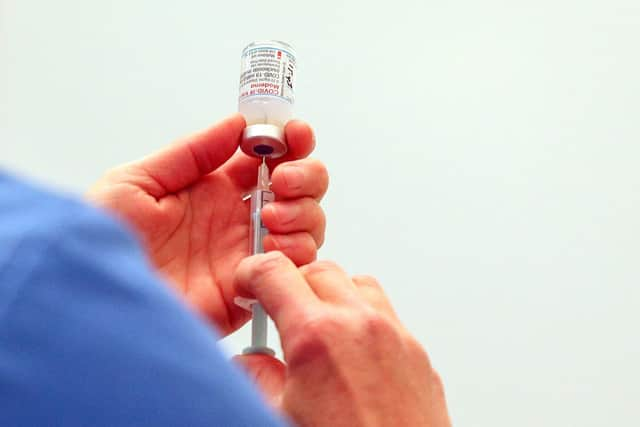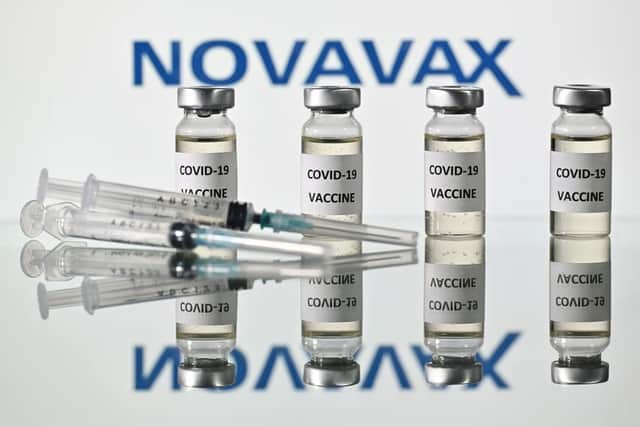Coronavirus in the UK: 'Mix and match' vaccine trial expands to include two additional jabs
Researchers running the Com-Cov study – which investigates alternating doses of the first two jabs to be rolled out in the UK – have announced the programme will be extended to include the Moderna and Novavax vaccines.
Led by the University of Oxford, the extra study will seek to recruit adults aged over 50 who have received their first vaccination in the past eight to 12 weeks.
Advertisement
Hide AdAdvertisement
Hide AdIf successful, scientists have said this could lead to a more rapid vaccination course.


Matthew Snape, associate professor in paediatrics and vaccinology at the University of Oxford, who is chief investigator on the trial said: "The focus of both this and the original Com-Cov study is to explore whether the multiple Covid-19 vaccines that are available can be used more flexibly, with different vaccines being used for the first and second dose.
"If we can show that these mixed schedules generate an immune response that is as good as the standard schedules, and without a significant increase in the vaccine reactions, this will potentially allow more people to complete their Covid-19 immunisation course more rapidly.
"This would also create resilience within the system in the event of a shortfall in availability of any of the vaccines in use."


The volunteers, who will have received either the Oxford/AstraZeneca, or Pfizer/BioNTech vaccine, will be randomly allocated to receive either the same vaccine for their second dose, or a dose of the jabs produced by Moderna or Novavax.
The Moderna jab has started being rolled out across the UK, and the Novavax jab manufactured by GlaxoSmithKline (GSK) is under rolling review by the Medicines and Healthcare products Regulatory Agency (MHRA).
The six new arms of the trial will each recruit 175 candidates, adding 1,050 recruits into this programme.
The researchers will study any adverse reactions and the immune system responses to these new combinations of vaccines.
Advertisement
Hide AdAdvertisement
Hide AdThe study is designed as a so-called non-inferiority study, which means its intent is to demonstrate that mixing is not substantially worse than not mixing.
It will compare the immune system responses to the gold-standard responses reported in previous clinical trials of each vaccine.
If the study shows promising results, the MHRA and Joint Committee on Vaccination and Immunisation would formally assess the safety and efficacy of any new vaccination regimen before it is rolled out to patients.
Prof Snape said he hoped the results of the second part of the study would be available in June or July, with the first part expected to report results next month.
He said: "What I'm hoping is that we won't rule out any combinations.
"That's how we need to look at it - are there any combinations we shouldn't be giving, because they don't generate a good immune response and I'm hoping that won't be the case.
"And that will give us lots of flexibility, not just in the UK, not just in Europe where we're looking about restricting uses of some vaccines for some age groups, but across the world, where we have, perhaps, a little bit more intermittent supply of vaccines, not as reliable.”
A message from the Editor:Thank you for reading this article. We're more reliant on your support than ever as the shift in consumer habits brought about by Coronavirus impacts our advertisers.
If you haven't already, please consider supporting our trusted, fact-checked journalism by taking out a digital subscription.
Comments
Want to join the conversation? Please or to comment on this article.